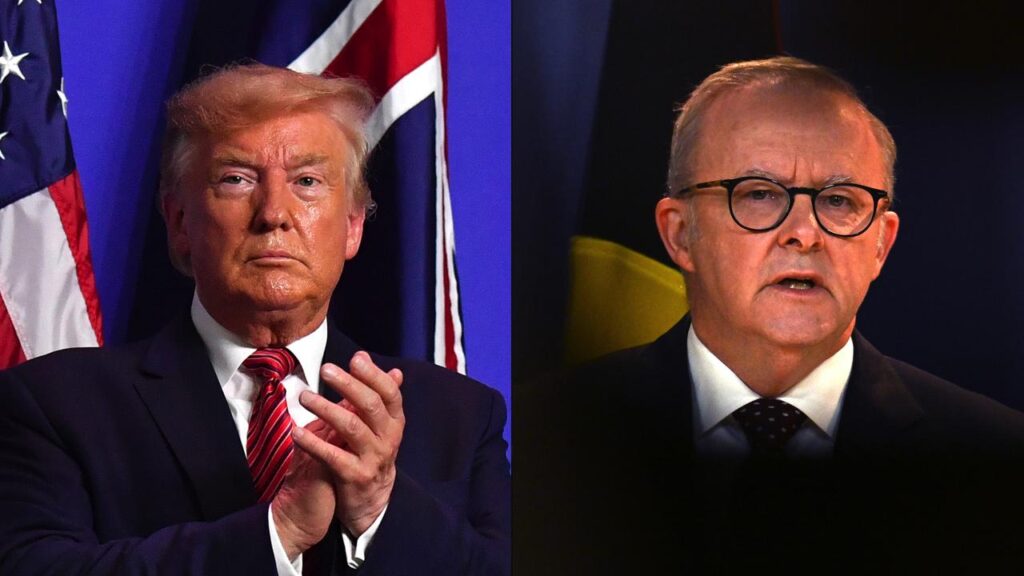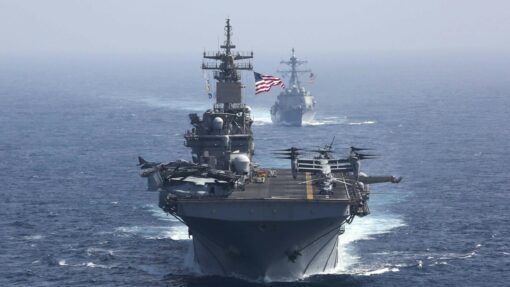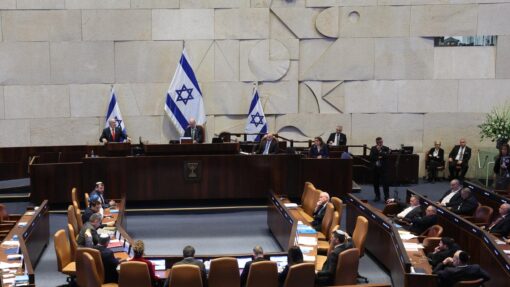Australia’s US tariff fixation ‘missing bigger picture’
Kat Wong |

Australia has been urged to zoom out on its approach to the US relationship, instead of honing in on the nitty-gritty of tariffs.
Prime Minister Anthony Albanese faces growing pressure to organise a face-to-face with US President Donald Trump after their scheduled June meeting was scuppered by events in the Middle East.
With Mr Trump’s tariffs continuing to dominate global economic discussions, the prime minister has hinted at ways his government could negotiate a carve-out.
But United States Studies Centre research director Jared Mondschein said Australia should take a more long-term view on the US as trying to predict the Trump administration was “a bit of a fool’s errand”.

“Instead of focusing – in my view – too myopically on the tariff side, I encourage the Australian government to focus instead on the broader conversation,” he told AAP.
“(Tariffs are) something unique to this administration, I can’t imagine other administrations doing it similarly.
“There’s a lot of opportunity where Australia has more influence.”
Security, supply chains, space co-operation and critical minerals were all areas in which Australia could bolster ties to the US for years beyond Mr Trump’s second term, Mr Mondschein said.
Washington had shown a particular eagerness to get its hands on critical minerals as China had previously used its hold on rare earths to gain economic leverage.
Mr Mondschein noted Beijing blocked exports to Japan in 2010, but in the 15 years since there had been “more rhetoric than substantive gains in any sort of calibrated response”.

“It’s all the more important for allies and partners to start getting their act together,” he said.
Resources Minister Madeleine King on Tuesday said Australia would continue working with the US to invest in critical minerals to ensure the nation could become a “robust” part of the global supply chain, capitalising on its geological and geographical advantages.
Mr Albanese was expected to meet the US president on the sidelines of the G7 summit in mid-June but Mr Trump left the event the night before their scheduled conversation to deal with escalating tensions between Iran and Israel.
The coalition has continued to pressure the prime minister over the relationship with Australia’s key ally, with opposition defence spokesman Angus Taylor saying the prime minister “has never had any great love for the US alliance”.
While Mr Albanese wasn’t the only world leader to be stood up by the Republican president, the relative insignificance of Australia as a US trading partner has been raised as one obstacle to getting a rescheduled meeting.
But Mr Mondschein did not believe missing a bilateral meeting was an existential challenge as Australia’s relationship with the US had never been so consequential.

The prime minister said Australia was an important ally for the US as it helped deliver peace and security in the Pacific region, and provided goods and services to the world, making it a significant economy.
“Australia always pulls our weight,” he said.
Mr Albanese added he understood the president’s decision to leave the G7, a move that eventually led to a fragile ceasefire between Iran and Israel.
The G20 leaders meeting in November, the Asia-Pacific Economic Cooperation summit in June and the Quad meeting – which will occur some time in the year – all offer a second chance for the two to get together.
Foreign Minister Penny Wong landed in the US capital Washington on Tuesday, Australian time, as Canberra tries to broker an exemption from America’s 50 per cent tariffs on Australian steel and aluminium imports and 10 per cent levies on other goods.
She is set to attend a meeting of Quad foreign ministers, which includes US Secretary of State Marco Rubio along with ministers from India and Japan.
AAP


